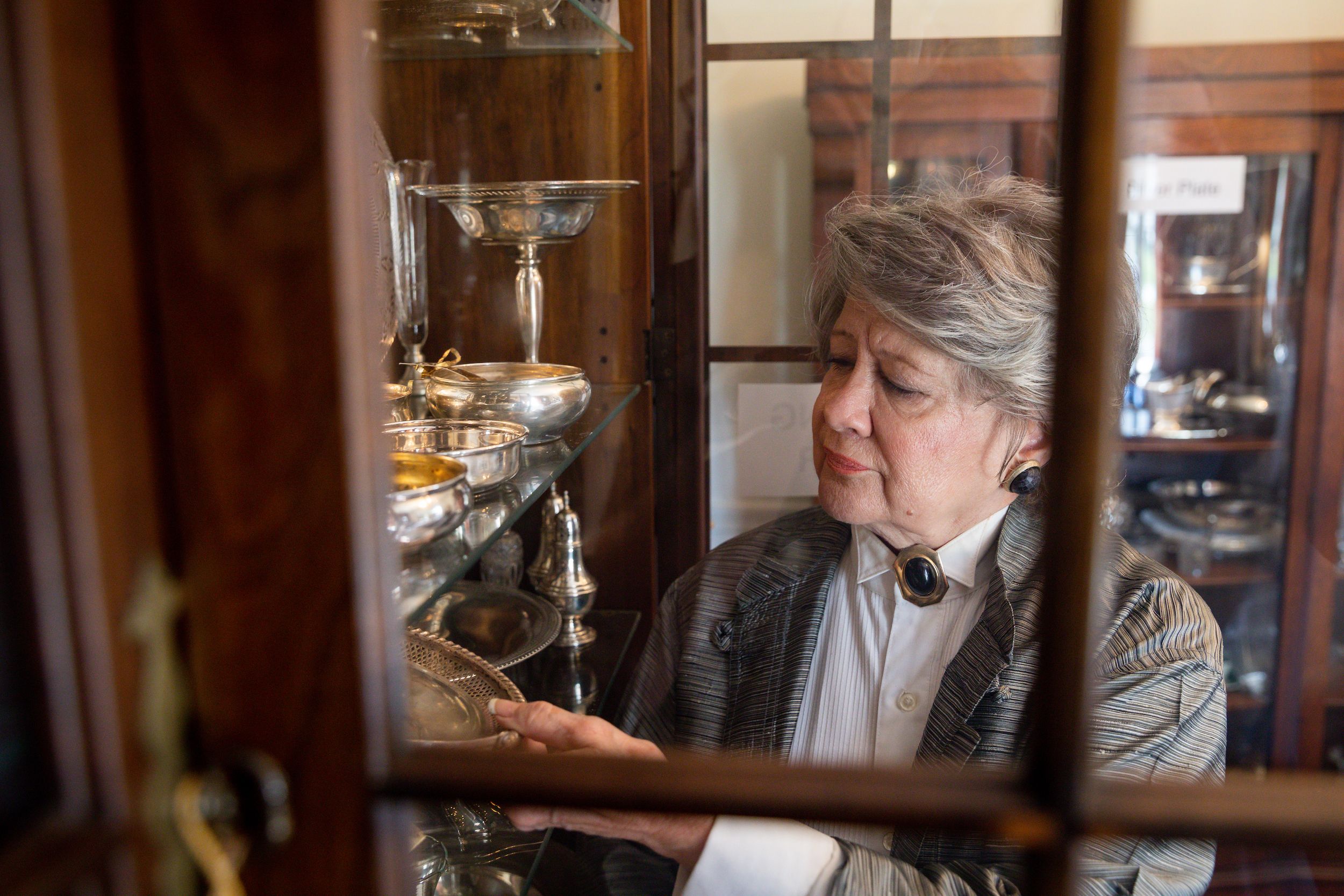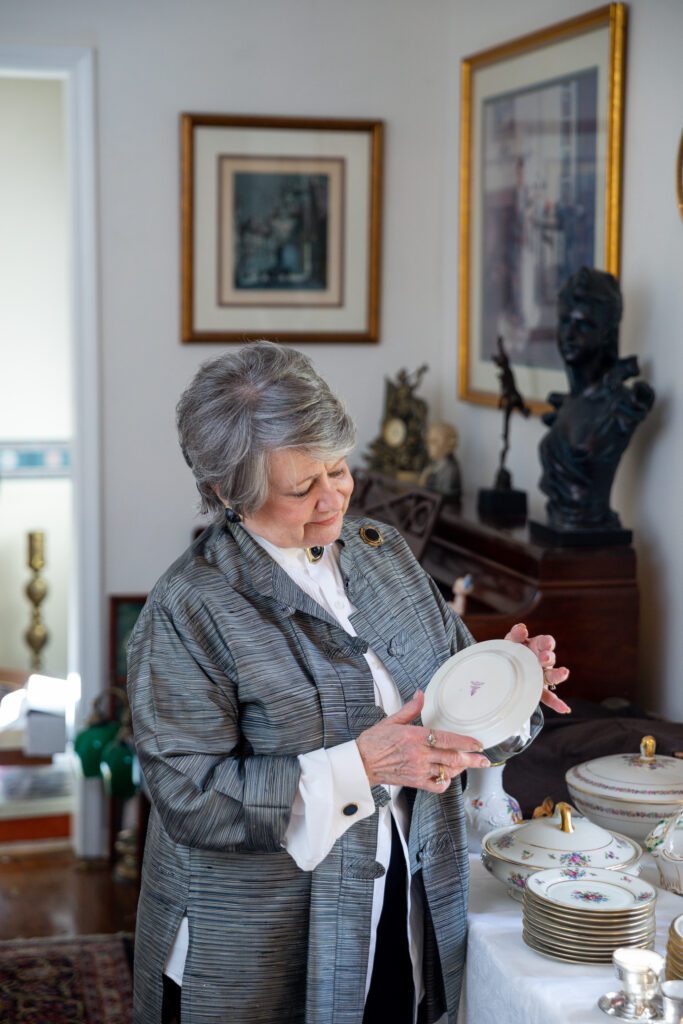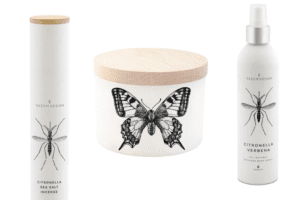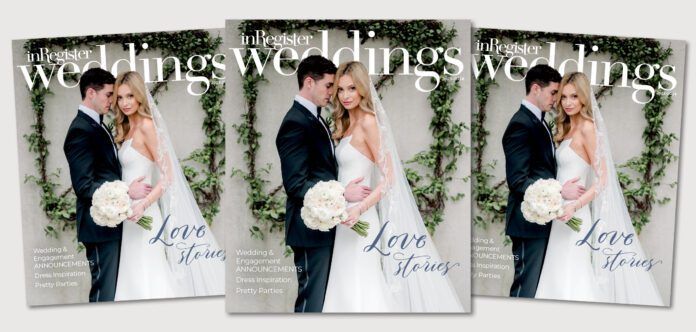
Pro tips for navigating estate sales and auctions, whether you’re a seller or a buyer
If you caught our story on the modern renaissance that auction houses and estate sale companies are now experiencing–or if you have been anywhere near social media, where antiques are now as comfortably at home in the abodes of “grandmillennials” as they are in the decor of older generations–you may have caught the bug. But whether you’re thinking of cashing in on some of your heirloom antique pieces or you want to add a few previously loved items to your own home, it’s best not to go it alone. We asked local professionals in the field for their best advice on both selling personal property or purchasing your next great treasure. Read on for their tips:
Tips for Sellers
- Before you contact an auction house or estate sales professional to sell property, inform everyone in your family. “In the past, they may have insisted they don’t want anything,” says Noelle Lanier, owner of NL Estate Sales. “But family members tend change their minds if they know the items will be gone for good.”
- Examine each piece for the manufacturer’s name or other distinctive markings. For china and silver, makers’ marks may be on the back. For armoires and other wood furniture, pull out the drawers to look at the construction and the manufacturer’s stamp. Even if you don’t know what markings mean, you can take a picture to send to a professional.
- Find out where the piece came from or how long it’s been in your family. An old scrapbook might show your family gathered around your mahogany dining table for Christmas in the 1940s, or your aunt showing off those earrings at the Marrakesh bazaar where she bought them during her time in the Peace Corps in the 1970s.
- If you want to get an idea of how much something might be worth, look it up online. Whether your intent is to satisfy your curiosity or buy or sell an item, visit liveauctioneers.com, invaluable.com, artnet.com or just Google it to see what others have recently paid for similar items.
- If you decide to sell an item yourself, meet the buyer in a public place—not at your home or business. Some police stations now have a safe space for transactions.
- Consider the best place to sell your item might be across the country or across the globe. For example: If you’re selling a painting by [New Orleans artist] Ida Kohlmeyer, you might want to put it up for sale in New York. “She’s now having a real renaissance [there] as many midcentury painters of women painters are,” New Orleans appraiser Robyn Dunn Schwarz says. “If you do a little research, you can figure out where the best market to buy or sell a particular work is.”
Tips for Novice Buyers
- To avoid buyer’s remorse, don’t wait until you’ve bought an item to confirm its value. The auction company sets minimum bids. But the actual sale price is dictated by what the buyers are willing to pay. To make sure you don’t overpay for an item, do your research before the auction, decide your limit and stick to it. The risk of over- or under-valuing an item cuts both ways. Owner of Crescent City Auction Gallery Adam Lambert notes, “If you buy something for $500 and it’s worth $5,000, the auction company doesn’t make a profit.”
- If you’re concerned about an item’s value, ask questions and make sure you understand the explanation. If you’re unsure of a valuation, Schwarz suggests asking questions such as: How do you know this is what it is? Have you consulted any experts? How do you know that’s the condition? Can you explain that or show me? “If you don’t understand the answer, ask them to explain it,” she says.
- Learn the auction house’s or estate sale firm’s mode of operation. Most estate sales professionals and auction houses expect to get full price at the beginning of the sale. If you’re willing to risk losing the item to a higher bidder, there are opportunities to buy post-sale at a discount.
- Know lowball offers are likely to be rejected. Auction and estate sales professionals work on commission. They invest time and resources to present items for sale. Their job is to get the best price for each item based on their expertise.
- Do business with local businesses. Because there are no local auction houses in Baton Rouge, if you decide an auction is the way to go, it’s best to work with New Orleans galleries with brick-and-mortar locations and longevity. Avoid traveling auctions that are in town only a few days. Likewise, since there are no personal property appraisers based in Baton Rouge, visit the American Society of Appraisers or Appraisers Association of America to find certified professionals. To find an estate sale professional, visit estatesales.net and look for someone with a long record of successful sales and strong references in Baton Rouge.
- Please don’t use chalk paint on beautiful dark woods. “It’s distressing to sell fabulous wood and realize someone is going to chalk paint it,” says Lanier. “Because we all know, in less than 10 years, things will change, and someone is going to curse them for it.”

…and, a Little Post-Hurricane Season Lagniappe
Even if you’re not buying or selling items, Schwarz says post-hurricane season is a great time to review insurance coverage and get valuables appraised or at least photographed for documentation. “I think there’s a misconception that you pay your homeowners [insurance] and it covers everything,” she says. “That’s not always the case, so it’s best to check.” With the increased frequency of hurricanes, tornadoes, floods and other weather events, “you want to make sure that you can replace [the property] if you have a loss or damage,” she says.
Read our article on art and antique auctions and estate sales here and in the December issue of inRegister, available on newsstands now.











